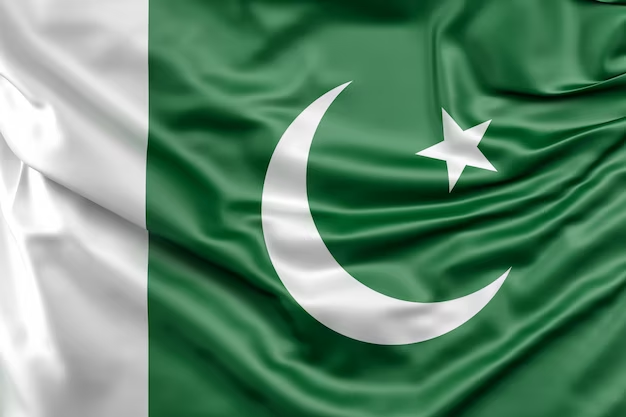
The resurgence of Shehbaz Sharif in Pakistan’s political arena marks a crucial juncture in the nation’s trajectory, where domestic politics intersect with international relations. As the torchbearer of the Pakistan Muslim League-Nawaz (PML-N), his return injects renewed vigor into a landscape laden with complexities. It sparks discussions about political rejuvenation and intra-party democracy within the PML-N. While his experience as a former Chief Minister of Punjab lends credibility to his leadership, it also underscores the necessity for broader representation and fresh perspectives within the party’s ranks.
According to political commentator Hamza Ali Abbasi, Shehbaz Sharif’s resurgence elicits a blend of optimism and skepticism. While his experience might stabilize the PML-N, doubts about dynastic politics persist.
On the regional front, Shehbaz Sharif’s emphasis on dialogue and engagement with neighboring nations offers a glimmer of hope for thawing frosty relations, particularly with India and Afghanistan. Nonetheless, the absence of a clear roadmap for tangible progress breeds skepticism about the effectiveness of mere rhetoric without substantive actions.
Pakistan faces formidable economic challenges, including soaring inflation, unemployment, and widening fiscal deficits. Shehbaz Sharif’s return offers an opportunity to tackle these pressing issues through pragmatic economic policies and governance reforms. His tenure in Punjab was marked by a focus on infrastructure development, encompassing transportation networks, energy initiatives, and public healthcare facilities. If he replicates this approach nationally, it could spur economic growth, job creation, and improved living standards for millions of Pakistanis.
Citing a report from the World Bank: “Pakistan confronts significant economic hurdles, including macroeconomic imbalances and structural constraints. Addressing these challenges necessitates sustained efforts in fiscal consolidation, investment promotion, and governance reform.”
Pakistan’s human rights record has come under scrutiny both domestically and internationally, with concerns raised about freedom of expression, press freedom, and minority rights. Shehbaz Sharif’s commitment to upholding democratic principles and the rule of law is paramount in addressing these concerns and enhancing Pakistan’s global standing. Pakistan must take tangible steps to address human rights violations, including enforced disappearances, extrajudicial killings, and restrictions on freedom of expression. Upholding the rule of law and respecting human rights are indispensable for Pakistan’s credibility and legitimacy.
Recent incidents, like the explosion targeting Chinese nationals in Pakistan, underscore the looming concerns about state-sponsored terrorism. This incident not only highlights Pakistan’s precarious security situation but also poses a substantial obstacle to regional relationships, especially with China.
From a report by The Diplomat: “The explosion targeting Chinese nationals underscores the urgent necessity for Pakistan to address concerns regarding security and terrorism, potentially straining ties with crucial allies.”
Similarly, Shehbaz Sharif’s advocacy for energy collaboration with Iran holds promise for addressing Pakistan’s energy crisis. However, amidst geopolitical tensions and international sanctions, doubts persist regarding the feasibility and long-term implications of such ventures. While energy collaboration with Iran may alleviate Pakistan’s energy woes, geopolitical factors and international sanctions present significant hurdles.
Pakistan’s economic advancement relies significantly on its ability to attract foreign investment and cultivate economic alliances with other nations. The reemergence of Shehbaz Sharif has the potential to enhance Pakistan’s economic diplomacy endeavors, leveraging his past achievements in facilitating trade and investment as Chief Minister of Punjab. Foreign direct investment stands as a crucial catalyst for Pakistan’s economic progress, necessitating governmental initiatives to facilitate such investment by bolstering infrastructure, refining regulatory frameworks, and addressing security considerations.
Shehbaz’s emphasis on infrastructure development and energy projects could position Pakistan as an appealing destination for foreign investors, particularly in sectors such as energy, manufacturing, and agriculture. By fostering strategic partnerships with countries like China, Saudi Arabia, and the United Arab Emirates, Pakistan can access critical capital, technology, and expertise to propel its economic transformation.
In terms of counterterrorism cooperation with Western allies, Shehbaz Sharif’s commitment to combating terrorism while upholding sovereignty is commendable. Nevertheless, constructive criticism demands a reevaluation of Pakistan’s counterterrorism strategy to strike a balance between national security imperatives and principles of human rights and rule of law. Pakistan must ensure that its counterterrorism efforts align with international human rights standards to prevent alienating Western allies.
In conclusion, Shehbaz Sharif’s return to Pakistan’s political forefront presents both prospects and challenges. While his leadership may reinvigorate the PML-N and bolster diplomatic endeavors, critical examination and proactive measures are essential to address enduring issues and foster sustainable progress. As Pakistan navigates its intricate political landscape and international relations, pragmatic leadership, inclusive governance, and proactive diplomacy are imperative to steer the nation towards stability and prosperity.
By The European Institute for International Law and International Relations















